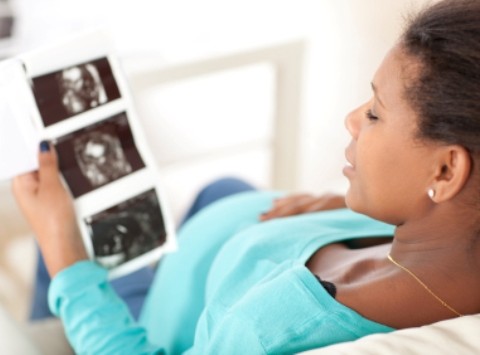Many mothers-to-be begin planning for the arrival of their babies during the second trimester of pregnancy. By this point, you might have gotten past the fatigue and nausea that are common in the first trimester, making it easier for you to focus on getting your home baby-ready. This is also a great time to join a child birthing class, so you can prepare for delivery. Your pregnancy will become apparent around month four when the baby bump starts to show.
Baby Development in the Second Trimester
Somewhere between the 18th and 22nd week of pregnancy, fetal gender development will be visible on the ultrasound, and you’ll be able to hear your baby’s heartbeat. The baby will grow exponentially from approximately 4 inches at the start of the second trimester to 11 to 14 inches by the end of the sixth month. As the baby gets bigger, you will be able to feel him or her move. The baby is also becoming more aware of its environment and can hear your heart beat and muffled noises from outside the womb. The baby continues to develop physically and will start to grow hair, acquire fingerprints and produce thyroid hormones, and the brain will continue to mature.

Pregnancy and Your Body
Although morning sickness might have passed, you might continue to experience some discomfort. In addition to a growing belly, you might develop larger breasts and experience back pain in response to the extra weight. Increased circulation can cause bleeding gums, nasal congestion, skin discoloration, dizziness and headaches. Fluctuating hormone levels can slow down urination, which can result in a bladder or kidney infection. Thin, white vaginal discharge is normal and can fight off unwanted bacteria, but if the discharge begins to turn green or yellow and causes itchiness, contact a medical professional.
Fetal Testing
During prenatal appointments in the second trimester, doctors might test for neural tube and chromosomal defects using amniocentesis and alpha-fetoprotein tests if you are at risk. The risk of miscarriage decreases greatly by the second trimester. At this stage, a miscarriage occurs when the uterus can’t hold the weight of the baby or begins to dilate too early. Another concern is premature labor. If you begin to feel contractions, cramps, indigestion and lower back pain, contact your doctor. She might prescribe medication to delay labor; or she might deliver the baby prematurely, followed by care in a neonatal intensive care unit.